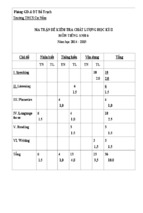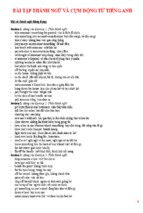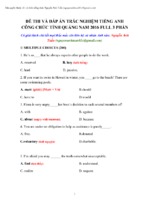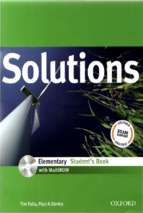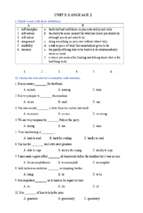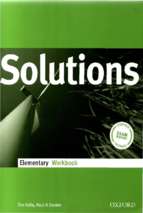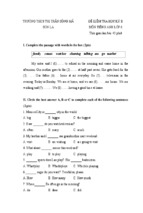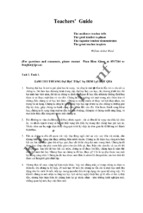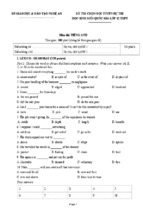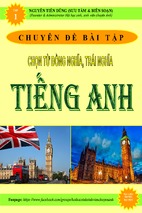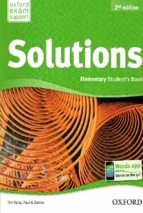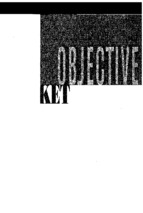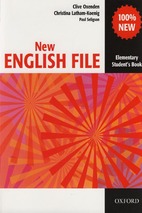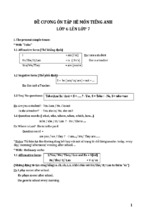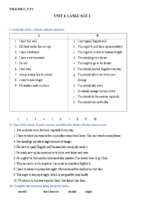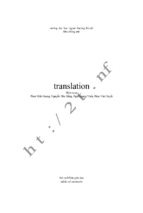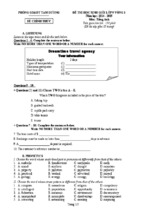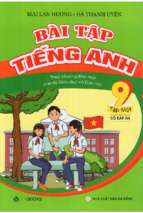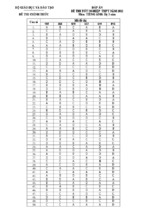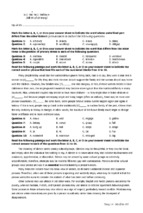Oxford
Grammar
forSchools
O X FO R D
Oxford
Grammar
for Schools
Martin Moore
O XFO RD
UNIVERSITY PRESS
O XFO RD
l.'Si IVMtSITY ['liK-;'-
Great ClajMttidtill Street. Oxford, o x * 6 q i ', United Kingdom
Oxford University Press is a department of the University of Oxford,
n I’lirtlwis tin1Univf liity's objective of cxeeiieitoe in research. scholarship,
and education by pUbLiSlidllg worldwide1. Oxford is a re^Ls.tcnc-cl track'
mark of Oxford University Pres* in ibe UK and in oerrain tuber countries
O Or. ford University Press 2014
The moral rights of rlic author have licen asserted
first published In 2014
2018 2017 2016 2015 2014
10 5 8 7 6 3 4 3 3 1
No unauthorized photocopying
All rights reserved. No part of this publication may be reproduced, stored
in a retrieval system, or transmitted; in any form or by any means, without
the prior permission in writing of Oxford University Press, or as ¿x press ly
permitted l>y law, by licence or under terms agreed w iiii the appropriate
reprographics eights organ ¡station. Enquiries concerning reproduction outside
the scope of the above should lie sent to the Ei.T Rights Department, Oxford
University Press, at the address above
You must not circulate this work in any other form and you must impose
this same condition on any acquirer
links to third party websites arc provided by Oxford in good faith and for
information only. Oxford disclaims any responsibility for the materials
contained in any cliircl party website referenced it) this work
ISBN: 078 O 19 437)903 4
Pti nted in China
Tills book is printed on ¡wiper from certified and well-managed sources.
ACKNOWI.Fl>r,I:MItNTS
iltuimuionjljy;Judy Brown pp.7,16,31.35, -16.71, at. 1 0h, 106.12 -1 ,139.
MS (Ex 3}. 159.166; ileatherClarke |>p.29|!:x 81,55, 73, 78 (Rx ■], M , 123,
123(Ex t). 136.143 (Prepositions of place), 149, 158: Janies Ifart pp.26, UiUl-x 10 }.
42, 58.86,98, 118 , 155.163; Sean Ijongcrolt pp. 18.33,48.65, S3, 87, 112, 121,
142, 146, 0 2 ; Oxford University Press |)p.lt>7,169; Andy Peters pp.6 , it , 15, 2 b.
24, 30.33,41.43. 32.37,61,73, 78{teporn?il Speech}, 84.89,5ft. 103,103.110,
116 , 120, 123 (desert island), 127.132, 140,144,148.133.1 36; Jo Taylor pp,9, 38.
1(12 ,107. 139
VVf WouldoJso Nkc to thunk the/olto4ying$r permission te repreduce tite/bifowinj;
jifiotogruphs; Atamy pp.94 (Jim Wileman), 154 (credit cardi'nolieastsofLorre),
(thips/VUyor rischflr), (diet Lima ry/D. fhustj. (swimming liatjAnton Starikov),
(keyboard/¿foanir/lgor Tereibov/Zoonar GmbH), 137 (iiinkyibnd London/Paul
Williams). 139 fiony french); Corhis p, 143 (George Tiedemami/uistoriral);
Getty images pp,17 (John Umd/Marv ftomaiielli.fblend linages). 60 (Bob Thomas/
PijpperftdoJy 7b (Andy Burlianasi/ArT1), 72 (Kyu OIi/E+J, 131 (KidStockJISlend
images); Royalty-free pp. 17 (Riraido Junqneii'a). 32 rkangaroo/Phoiodisc),
32 (tiger/PhcittKlisc). 80 (Tliinkslock). 134 (jamflolm FOJtx); Science Photo Library
p.2-8 iDetlev van Ravenswaay): SbiiUerslock pp.19 (Victor Tones), 23 (Gail
Johnson). 32 (jprilla/bric Isieloq), (pengnin/iailtsde), 34 ¡Nataiki).41 (Jwep Pena
LlorblLS), 64 (doishock), 68 (Good In a). 93 (Uigclien). 101 (Goodin*). 109 (woman/
hmrtc mw ). (traffic
Adisay, vS3(jsrtswu},
Introduction
Oxford Grammar for Schools helps students develop a
detailed understanding of gram m ar form and use in
context, and inspires them to have fun with Eng[ish
through personalized activities, gam es and role play.
The gram m ar is introduced or revised through easyto-read tables and illustrated presentations with clear
At the end of the book there are five pages of extra
examples, all level-appropriate, The exercises build
in class with any coursebook to support and reinforce
from controlled activities up to more com municative
and productive skilis-based activities. In each unit there
their gram m ar study, The Teacher's Book includes all
information for the information gap activities, a
reference section containing useful form tables, and an
irregular verb list.
Students can use the Oxford Grammar for Schools series
are several speaking activities where students work
the answers and audio scripts.There are also tests for
every Student's Book unit, and two review tests which
with each other to use English with improved accuracy
can be used at the end of a school term or whenever
and confidence. The extended writing activities also
appropriate.
encourage students to use language in realistic
situations.
Student's DVD-ROM
Each unit begins with a Can do' statement, which
summarizes w hat students wilt be able to achieve on
completion of the u nit At the end of each unit is a self
evaluation table. Students should be encouraged to
rate their progress in each exercise, which helps them
to take responsibility for their own learning and also
increases motivation.
The Student's DVD-ROM Includes all the exercises in
the Student's Book, as well as all the audio recordings
for the listening an d pronunciation activities. Students
can also access an d print out extra interactive
activities, giving them motivating additional practice
for hom ew ork.The teacher can also use the DVD-ROM
on an Interactive whiteboard in class.
Key to the symbols
O o .o
A
{0.0 = track number)
Listening activity
Speaking activity
Gom e
/
Extended writing activity
©
Pronunciation activity
*
Introductory exercise
*
*
M oderately challenging exercise
«
*
*
Most challenging exercise
A difficulty rating is given to each exercise. The scale of difficulty is relative to each unit,
so there are exercises with one, two, and three stars in every unit.
Introduction
3
Contents
1
Nouns, quantities and articles
Countable, uncountable and plural nouns
Quantities: a/an/some; container words
Articles: The/a/an/no article
2
Some and any; indefinite
pronouns
Some/any/no; requests and offers
Indefinite pronouns: sam e-/any-/every-/na’'
11
3
Quantifiers
Much, many, a lot of, a few, a little
Too much, too many, (not) enough
15
4
Personal pronouns; impersonal
there and it/they
Personal pronouns
Impersonal it/they and there
20
S
Demonstratives and possessives
Demonstrative pronouns: this/that/these/those; one/ones
Possessive adjectives; possessive pronouns; possessive's
24
R evisio n !
Units 1-5
6
27
6
Present simple and continuous
Present simple and continuous contrast
30
7
Past simple
Past simple: regular verbs
Past simple: be
Past simple: irregular verbs
Time expressions: in, last, yesterday, on, ago
35
8
Past continuous
Past continuous: time expressions
Past continuous or past simple?
When/while
41
9
Present perfect
Present perfect: time expressions (unfinished); gone vs been
Present perfect with just, alread y, yet and still
Present perfect with since and for
45
10
Present perfect and past simple
Present perfect and past simple contrast
52
11
Past perfect
Past perfect vs past simple; conjunctions when/by the time/
before/after/the first time
57
12
The future
Be going to + the infinitive
Will + the infinitive
S h a ll...?
Present continuous for future
Will vs going to
61
_____________________________________
Revision 2
Units 6-12
______________
67
13
To + the infinitive and the -ing
form
To + the infinitive
-ing form: go + -ing; -ing as subject
Verbs with to + the infinitive or -ing
73
14
Reported speech
Tense changes
Pronoun changes
Say vs tell
Time and place references
78
Revision 3
Units 13-14
32
15
Con, could, be able to
Can, could, be able to: ability
Can and could: permissions and requests
84
16
Must, have to, should, needn't
Must, have to: necessity and obligation
Mustn't, don't have to, needn't: permission and obligation
Should, must: advice and recommendation
89
4
Contents
Revision 4
Units 15-16
94
17
Question words
What, when, where, who, why, how
What vs which
Whose vs who's
How 4 adjective/adverb
Subject and object questions
96
18
Question tags
Pronunciation and meaning: checking information;
helping conversation
103
19
Relative pronouns
Who, which, that: subject and object relative pronouns
Relative clauses with when and where
105
20
Connectors
And, but, or
Because, so, although
When, while
110
Revision 5
U nits 17-20
114
21
Prepositions of place
Zero conditional
First conditional
116
22
Second conditional
Second conditional
First vs second conditional
120
23
I wish
I wish + past simple
I wish + would
123
Revision 6
Unit 21-23
125
24
Comparison: adjectives and
adverbs
Comparative and superlative adjectives
Not a s ... as; less ... than
Comparison of adverbs
127
25
Position: adjectives and adverbs
Position of adjectives
Position of adverbs
Too and enough
132
Revision 7
Units 24-25
138
26
Prepositions of time
At, in, an
After, before, during, for
By, fro m ... until
140
27
Prepositions of place and
movement
In, at, on 4 place
Prepositions of place
Prepositions of movement
144
28
Expressions with prepositions
By, for, in, on, with
148
R evisio n s
Units 26-28
151
29
Active and passive
Active vs passive
Present simple passive
By 4 agent
153
30
Past passive
Past simple passive
156
Revision 9
Revision 10
Units 29-30
158
All units
160
Extra information
168
Reference
173
Irregular verb list
176
Contents
5
Nouns, quantities and articles
! can use countable and uncountable nouns and articles*
Countable, uncountable and plural nouns
Spelling rules
Most nouns:
pencil - pencils
car - car
Nouns ending in -s, -ss, -sh, -ch, -x:
glass - glass ■ box - box
Nouns ending in-or
piano - piano
radio - radio
There are two exceptions:
potato - potato?
tomato - tomato
Nouns ending in consonant + -y: -»
strawberry - s trawberr
city - citi
But nouns ending in vowel + -y:
toy - toyi day - day
Nouns ending in -f or -fe:~*
tea f-iea res k n ife-kn i
Countable nouns have singular and plural forms.
one ruler two rulers
one woman three women
A few nouns have irregular plurals,
man -4 men
fish fish
woman s women
mouse mice
child -* children
goose -* geese
person people
foot feet
sheep -* sheep
tooth teeth
Uncountable nouns only have a singular form. We
cannot count them.
one-homework twenties
waters water moneys money
Write the words in the correct place*
O
apple burger cheese coffee egg fruit
grape oil orange pasta rice salt
sandwich toast vegetable water
Countable
6
Uncountable
Nouns, quontities ond articles
0 1.1 Circle the correct answer. Then listen
and check,
O
► I like fast car / c a r s .
1 Have you got any bread / breads?
2 I often eat grape / grapes for lunch.
3 Do you lister to music / musics in the car?
4 Tony doesn't enjoy exam / exams.
5 They don't understand the homework /
homeworks.
6 Have you got any information / informations
about the museum?
7 l can't find my money / moneys,
8 Lucy bought some T-shirt /T-shirts for her holiday,
9 He arrived late because of the traffic / traffics.
10 I offered him some fruit/fruits.
Write the plural form if the noun is countable.
► baby
► rice
1
2
3
4
5
6
bebLfs
station ..
knife
rain
party
money
dress
7
8
9
10
11
12
13
14
.
petrol
person
advice
tooth
education
child
journey
electricity
O 1*2
What are they talking about?
Listen and number from 1-8.
a
b
Quantities
We use a or an with singular countable nouns.
I'd like an orange.
Have you got a phone?
We use a before a consonant sound and an before a
vowel sound.
a computer a house
a university (starts with l)k consonant sound)
an apple an island
an hour {starts with /at>/ vowel sound)
We don't usually use a or an with uncountable nouns.
I'd like -a cheese.
We use some with uncountable nouns and plural
countable nouns.
We've got some homework tonight
They need som e books.
If we want to count uncountable nouns, we
sometimes use a word for a container {bottle, cup)
or quantity {kilo, litre) with of. See page 173 fora list
of words.
Complete the sentences with the words in the
box. You can use words more than once.
a
an
a cup
a kilo
► I'd like to listen to
1
2
3
4
5
6
7
8
some
music.
My cousins live in ________ apartment.
Please p u t________ butter on my sandwiches,
Can you buy m e _________of cheese?
Sill has g o t________ old watch.
I'dlike________ water.
Mrs Jackson is ________ science teacher,
Would you fike________ of tea?
The police officer w ants________ information
about the accident.
9 That's________ long email,
10 They need ______ new equipment for the gym.
J 6 Match the beginnings and ends of the sentences.
► Have you got a bag of d _ ?
1 Let's get her a box o f_____ .
2 Check in the fridge. I don't think we've got any
_____+
3 Can you get me a n _____ ?
4 I need two packets o f_____ .
5 There isn't an y_____ .
a
b
c
d
e
f
milk
biscuits
chocolates
flour
oil
apple
Unit 1
7
Articles: the, a/an or no article
A/an
The
We use a/an when we talk about something and
we don't know which one, or it isn't important
which one.
We use the when we talk about something and the
speaker and the listener know which one we are
talking about,
Id tike a sandwich , please.
What sort would you like? We've got cheese or chicken.
Would you like the cheese or the chicken sandwich?
Could 1have the cheese sandwich , please?
Have you got a laptop? (= any laptop. The speaker
doesn't know which one.)
Did you bring the laptop? (=The speaker and the listener
both know which laptop they are talking about.)
We use a/an when we talk about something for
the first time.
We use the when we talk about something for
the second time,
She's got a bicycle. The bicycle is blue.
She's got a bicycle. The bicycle is blue.
We also use a/an when we are talking about
someone's job and when we mean one'
He's an actor . She's a teacher.
a hundred people an hour
We also use the before ordinal numbers in dates,
especially when we are speaking.
the third o f January the tenth o f May
We use the when we talk about musical instruments.
1play the piano. She plays the guitar.
No article
In some cases, we do not use a/an or the with a noun.
We do not use articles with plural nouns or uncountable
nouns in general, when we mean 'all'
Fruit is good for you. The fruit is good for you.
Nurses work in h os pi tois. 1be-nurses work in hospitals,
Homework is important.
We do not use articles with names of people, cities,
most countries, streets, languages or school subjects.
Emily lives in Australia.
My school is on Oaktree Road. My school is on the Oaktree Road.
1speak Russian . / speak the Russian She unders tands Arabic.
1study maths. 1study tbe-maths. 1enjoy physics.
Complete the sentences to describe these jobs.
architect doctor dentist farmer hairdresser
waiter police officer shop assistant
mechanic
► Doc-tor^________________ help sick people to get better.
1
2
3
4
5
6
7
S
8
_________________________ repair cars and lorries.
__________________________ cut people's hair.
__________________________grow food and look after animals,
__________________________catch criminals and protect people.
_________________________ serve food and drinks In restaurants.
__________________________ design houses and other buildings.
__________________________sell products In shops.
look after people's teeth.
Nouns, quontities and articles
»8
© O i ■3 Read the information, then listen and
repeat the words.
©
A, an and the are normally not stressed
They have'weak'vowel sounds.
9
£11
Look at the picture below for one minute.
Cover the picture, then ask and answer
questions about these things with
your partner.
apple banana brown bag blue book
bottle of water cat computer guitar
jacket lamp red bag red pen phone
purse television tennis racket white book
a =h/
before a consonant sound
a concert
a postcard
an =/an/
before a vowel sound
an actor
an exam
the = Mo/
before a consonant sound
the market
the radio
the university
t h e - Mi/
before a vowel sound
the airport
the umbrella
is t htre
¡eÉtte?
No, there tstVt
a lûiïirtÆkcti.
y&s, tiofire Is. a apple.
The apple is. ov^ the table,
is there a bar^a^a?
© O i .4 Tick (✓ ) the correct sound. Listen and
check. Then listen and repeat.
► ____ new coat
hi 0
/an/ 0
5 ____ amazing game
hi 0
/an/ 0
1 ____ easy question
hi 0
/on/ 0
6 ____ important
point
/ôa/ □
m □
2 ____ first prize
mo/ 0
m □
3 ____ brilliant film
hi 0
/an/ 0
4 ____old school _
/ôo/ □
Mi/ n
7 ____small problem
hi 0
hnl 0
8 ____usual song
/03/ 0
Mi/ [
£ 1 0 Circle the correct word.
► 'I'd like a / t h e drink/ 'Water or juice?'
1 'There are some books and a magazine.'
'Can I read a / the magazine?'
2 My dad is an / the engineer.
3 The fridge is in a / th e kitchen.
4 'Can i borrow a / t h e pen?' 'Yes. Wouid you like
blue or black?'
5 'Is there a / the computer in your classroom?'
'No, there isn't.'
6 'Can 1 have a / the banana?' 'Sorry,That banana
is for your dad.'
7 'I'm reading a new book.' 'What is a / the book
about?'
8 'Where is a / the car?' 'It's over there.'
9 'How long is the journey?' 'An / The hour and
fifteen minutes.'
10 I don't know an / the answer to this question.
£ 1 2 o 1.5 Number the sentences from 1 to 6.
Then listen and check.
a
On the desk is a computer and next
to it is a lamp.
b ____
There is a big bedroom and a small
bedroom.
c ____
The computer has a webcam.
d
My house has got two bedrooms.
±
e
1use the webcam when 1talk to my
cousin in Australia.
f ____
The small bedroom belongs to me
and it has got a small bed, a desk and
a wardrobe.
Unit 1
9
Write about your partner, using the
information from exercise 14.
Complete the sentences with the or - (no article).
► We normally eat
pasta twice a week.
1 The summer holiday starts o n ________ tenth
of July.
2 We make._______ .p ap erfro m _________ wood.
3 Don't look directly a t ________ sun. it's dangerous.
4 W as________ fish good yesterday?
5 Mike sp eaks________ German a n d _________ Turkish.
6 We have________ science at eleven o'clock on
Mondays.
7 Which shoes do you prefer? 1like________ red ones.
8 Jill plays_________piano beautifully.
9 Mary lives o n _________Bridge Road.
10 Do you have________ sugar in your coffee?
::1 4
vudey
bom owthe twelfth of .septem-ber.
S b i lives a t ...
£ 1 7 0 1 . 7 Complete the dialogue with a, an, some,
the or - (no article),Then listen and check,
Henry
Paul
Henry
Paul
o i.6
Listen and complete the table.
Use cr, an, the or - (no article).
Date of birth
Address
Henry
Paul
the seventh
of August
Henry
Paul
Avenue
father is
Parents'jobs
mother is
Henry
Paul
Favourite
subjects
ns
Musical
Instrument
plavs
Future plans
to be
Henry
Work in pairs. Ask your partner questions
and write the Information in the table.
----------------------------------------- 1
Date of birth
j
Address
Parents'jobs
Favourite
subjects
Musical
instrument
Future plans
Whew were you. bom., vld ey?
o n the twelfth o f September.
10
Nouns, quantities ond articles
How are you, Paul?
I've got
aw
exam next week, so I'm
a bit nervous.
You aren't normally nervous.
I know, but I want to becom e1________
doctor, s o 2________ exam is very important.
Really?
Yes, it's the most important subject for
3________ doctors,
So, are you studying hard?
Yes, I'm doing *________ revision at the
moment. But I've got *________ problem.
My cousins from *________ Australia are
going to be here for a week and ! want to
spend some time with them.
When do they arrive?
O n 7_________ seventh. The day before
0________ exam. What do you think? Are
’ ________ exams more important than
1C________ families?
That's difficult. You need to talk to your
parents.
Some and any; indefinite pronouns
I can use some, any and indefinite pronouns.
Some and any
We use some and any with uncountable nouns
{bread, money) or plural countable nouns (apples, shoes).
(We use a/an with singular countable nouns.)
We normally use some in affirmative sentences,
and any in negative sentences and questions.
I'd like som e chips.
There isn't any bread.
Have you got any homework?
We can sometimes use any in affirmative sentences,
to mean it doesn't matter which!
'Which bus do I take?' 'You can take any bus. They all
go to the town centre!
We sometimes use no for emphasis instead of
n o t ... any.
There isn't any bread left. ** There's no bread left!
But we can use some in questions if we are making
a request or an offer,
Can I have some water?
Would you like some help?
Circle the correct word.
Read the answers and write the questions.
► I've got any / some water in my bag.
► )£ ttoere
mille. Ln the -fylcigte?__________________
Yes, there ts some milk in the fridge.
1
?
Yes, please. I'd like some coffee,
2
?
No. They haven't got any money.
3 __________________________________________________________ ?
No. There aren't any fish in the lake.
4 __________________________________________________________ ?
Sure. You can have some paper.
5 __________________________________________________________ ?
Yes. She's got some new friends.
6 __________________________________________________________ ?
Yes.There are some empty tables.
7 __________________________________________________________ ?
No, sorry. You can't have any ice cream,
8 __________________________________________________________ ?
No, thanks. ] wouldn't like any lemonade.
1
2
3
4
5
6
7
8
9
10
There aren't any i som e computers in this room,
My mum eats an / some egg for breakfast.
There aren't any / some tomatoes in our fridge.
8e careful.There's any / some ice on the road.
! haven't got a / any pen. Can you lend me one?
My dad doesn't do any / some work at the
weekends.
I've downloaded a / some new music onto my
iPod.
Our teacher gave us a n y } some good advice
before the exam.
i would like any / some fruit for lunch.
l haven't got a / any money in my pocket,
Unit 2
11
Write the second sentence so that it m eans the
same as the first. Use no.
1 6 0 2 . 1 Complete the dialogue with some, any, a, * .
an, or no. Then listen and check,
^ 1^
► There isn't any salt in my pasta.
There's vw> salt in
-pasta._________________
Mum:
We've got some
dinnertonight.
1 He hasn't got any equipment.
Oscar:
Would you tike 1________ help?
Mum:
Yes, please. I'm making spaghetti but
there's *1
2_3
4_______ pasta in the cupboard.
Oscar:
OK. I'll go to the supermarket and buy
1_________spaghetti. Do we need A_______
other food?
Mum:
Let's think. I've g o t56
________ meat,
6_________tomatoes a n d 7_8________ onion.
So we don't n e e d a________ more food.
But we haven't g o t9________ drinks.
Circle the correct option.
Oscar:
► I need to go to the shops. We've / We haven't
got any bread.
OK. I'll g e t10*________ juice. What type would
you like?
Mum:
G e t 11_________type of juice. I don't mind.
Oscar:
OK, I'm going to Fred's house first and then
I'll go to the supermarket
Mum:
There's u ________ time to go to Fred's house.
I need those things immediately,
Oscar:
OK,
2 There weren't any buses yesterday.
3 There isn't any water in the pool.
4 We haven't got any time for shopping.
5 I haven't got any minutes on my phone.
*4
1 'Which film should we watch?'
'You can / can't choose any DVD. I don't mind'
2 You can / can't have any sandwich.They ail cost
the same.
3 I can't make a cake. There are / aren't any eggs.
4 He's very unhealthy. He eats / doesn't eat any
vegetables.
5 'Where can 3get that book?'
'it's easy. You can / can't buy it in any bookshop.'
6 There's / There isn't any time to have breakfast.
You're late for school.
7 She's got / She hasn't got any interest in football,
but she likes basketball.
8 Ask / Don't ask me any question and I will answer ft.
Complete the sentences with the words in
the box. Use a, an, any, some or no at least
once.
apple cheese coffee soup eggs
homework information jacket money
knives plates trainers sugar
►
1
2
3
4
5
6
7
8
9
10
12
Can I have some inform ation about train times?
Have you got________ to wear for the tennis lesson?
There a re ________ and forks on the table.
We haven't g o t________ so we can't buy the tickets.
'is there
. in your iunchbox?"Yes, a nice red
juicy one.'
Shall 1make yo u_________sandwiches?
Are th e re ________ ? I want to make an omelette,
There's_________in this drink. It's heaithy.
Would you like________ for lunch? It's cold today.
Have you g o t________ ? You have school
tomorrow,
Put o n __________It's raining.
some and cmy; indefinite pronouns
friends coming here for
Work in pairs. Read the instructions and
write a dialogue. Use some, any, a a nd an.
Act out the dialogue with your partner.
Student A:
Say you're making dinner.
Student B:
Offer to help.
Student A:
Ask student B to go to the shop and
buy food.
Student B:
Ask student A what they need.
Student A:
Say you have meat, peppers and
onions but you don't have carrots or
rice.
Student B:
Say you will get carrots and rice; ask if
student A has drinks.
Student A:
Say you haven't got cola; ask stud ent B
to buy cola.
Student B:
Say you will buy cola.
I'm, H®|ftlel*v0
kvow.
W ould ijou- LLfce s,om£ hekp?
Indefinite pronouns
S9
We use indefinite pronouns when we talk about an
unknown thing (something), person (someone,
somebody) or place (somewhere).
There's someone of the door, i don't know who it is.
Did you do anything on Sunday?
I can't find it anywhere.
some-
any-
every-
► .s c w i one is talking to your dad. Who is it?
1 He's really lazy. He didn't d o ________ thing
yesterday.
2 ________ body enjoyed the film. It was terrible,
3 'There's________ thing on the roof of the house,'
4
no-
someone
somebody
anyone
anybody
everyone
everybody
no one
nobody
something
anything
everything
nothing
somewhere
anywhere
everywhere
nowhere
_____________ J
5
6
7
8
9
10
We use pronouns with some- in affirmative sentences
and pronouns with any- in negative sentences and
questions. See page 11 for the rules.
-one and -body have the same meaning,
Som eone/Som ebody wants to talk to you.
We use a singular verb with every- and no-.
is everything OK?
No one enjoys exams.
We normally use only one negative word.
We
see anything , We---------see
;.
said anything. .................................. 1
0
9
8
7
6
5
4
3
2
1 8 Circle the correct word.
► I can't find my pen anything / anywhere
1
2
3
4
5
6
7
8
9
10
Wed like something / som eone to drink.
Everyone / Everywhere is looking at us,
I'm bored. There's nothing / no one on TV,
Can anything / anybody answer this question?
They want to go something / som ewhere in
Europe for their holidays.
1don't like exams. I always forget everything /
everyone.
All the cafes are closed, There's n o w h e re !
nobody to eat.
Be quiet! Don't say anything / anyone.
Can som eone/som ew here dose the window,
please?
It wasn't funny. Nobody / Nothing laughed-
0 2 . 2 Complete the words with some-, any-,
or no-. Then listen and check.
:n o
It's a cat!'
I went to Pat's house but there wasn't________ one
there.
My town is boring.There's_______ where to go in
the evening.
't can hear________ body's phone.'
'It's mine.Thanks!'
'How much does it c o st?''________ thing. It's free!'
_________one can do that. It's easy.
Can we g o ________ where quiet?
'I don't like sport, books or computer games,'
'Do you lik e ________ thing?'
o 2.3
Listen to the interviews with Gemma and
John and com pletethe table with names and
words from the box.
in another town basketball dance fishing
flute football golf painting piano
at a sports centre swimming tennis
Gemma's family
Who does
what sport?
John's family
bas feet baLL
Where?
Who plays
what
instrument?
Other
activities?
Complete these questions with indefinite
pronouns. Then ask and answer the
questions with a partner.
D oes_________________ in your family do sport?
is there_________________ to do sport near your house?
D oes_________________ in your family play a musical
instrument?
Does anyone d o _________________ else?
Unit 2
13
o 2.4 Complete the dialogue with the words in
the box.Then listen and check.
anything anywhere everyone
nothing someone something
May
>14
Say a sentence using an indefinite
pronoun. Your partner guesses if it's
true or false.
everything
somewhere
&t>hieojịịỊ£ ív<ị. Krty f a ruiLy has 0 reew cues.
Hi, Jill. How was your holiday? Did you go
anywhere nice?
Jill
Yes, we went to Fethiye in Turkey.
May
How was it?
Jill
1________ was perfect.The weather was
brilliant, the people were friendly and the
hotel was nice.
May
Did you do
interesting?
Jill
At the start of the week we were really tired,
so we did 3_________ We just sat by the pool.
T h e n 4________ told US that we could hire a
boat, so we went sailing every day.
May
That sounds lovely. And what was the food
like?
Jill
It was great, My favourite w a s 5
called Pilii; Dolma. You make it with chicken
and spices, it was delicious.
May
So did*
Jill
Yes. We all loved it. But I don't think we ll
go back. My parents prefer to g o 7
different every year.
enjoy the holiday?
Write a letter about a bad holiday. Use the
phrases below, with indefinite pronouns.
Invent other information.
I thlwte.that's fflUe. ! dairt/t ttútrtJe
flirt,yoirt,e CkV yũirt,r-fflmXLirt has arse® eyes,
There's ivíthLwg ¿VV rtty pứcleet.
I thLirtJe that's true. There's twkhivLQ iiA,
yữirtr poCnteet,
£ 1 5 Circle the correct option.
► Everyone was / were very tired,
1 I saw anybody / somebody famous yesterday.
2 There's / There are nothing in the cupboard.
3 She ate a / some bread and cheese.
4 We went som ething / somewhere very
interesting.
5 They didn't find / found nothing under the chair,
6 He's funny, Anyone / Everyone likes him.
7 Can I have any / some salt, please?
8 Don't phone anyone / anything after 10 p.m.
9 Everything is / are very expensive.
10 I've / 1haven't got no money!
was ttrrib le
w A S ixrvfrUtvdLw
stayed
old aiA.d w.ruÀpm,-fartabLe
d id n 't do
excltiryg
there was
Lirtifi resting ta v is it
d id n 't
Krtéét
flti
Seif-evaluation
Jrt¿c¿
bfld
_________ewjayed it
r w as Dirt, ViüLleíflH Last Wfidte. Every til Ltrtg was
tcrribLfi.
14
15
14
some and ony; indefinite pronouns
Rate your progress.
Quantifiers
I can talk about quantity.
Much , many, a lot of, a few, a little
We use much, m any a lot of, a few and a little to talk
about quantity.
We use a lot of or lots of to mean a iarge quantity
We use them in affirmative sentences (except in
formal written English, where we can use, for example,
a (large) number of).
We've got a lot o f cafés in our town.
We normally use much and many in negative sentences
and questions.
She hasn't got much money.
Do you watch many films?
How much milk do you drink1
We use a lot of or lots of with countable and
uncountable nouns. We use singular verbs
with uncountable nouns and plural verbs with
countable nouns.
There's lots o f food to eat.
There are a lot o f pictures in this book.
Uncountable
nouns
We use a little and a few to mean a small quantity.
We use them in affirmative sentences and requests
or offers.
t need a little help with my homework.
Would you like a few chips?
Countable
nouns
a lot of / lots of
a lot of / lots of
a lithe
a few
Negative
not much
not many
Questions
much
many
Affirmative
Circle the correct option.
We can sometimes use quantifiers without nouns,
when it is dear what we mean.
7s there much bread left?' 'No. Not much.1
'How many people were at the concert?' 'A fot.'
I
_ ,,j
► Lots of my friends live / lives near my sch o o l.^ ^ ^
There is 1 are a lot of lemonade in your fridge,
There is / are a lot of dirty socks in your bedroom.
A lot of their music is / are very loud.
Lots of famous footballers drive / drives fast cars.
There was / were lots of rain yesterday,
A lot of children study f studies English.
A lot of information about computers is / are
difficult to understand.
S There is /a re lots of kangaroos in Australia,
9 Lots of coffee come / comes from Africa.
10 There was / were a lot of biscuits in the
cupboard.
1
2
3
4
5
6
7
0 3*1 Complete the sentences with much or
many. Then listen and check*
► We haven't got w-u.ah coffee,
1
2
3
4
5
6
7
8
9
There weren't________ cars i n the car park.
Do you g e t________ snow in your country?
I don't need_________money,
D id ________ people go swimming yesterday?
There aren't________ things to do here.
'Do they speak French?' 'No, N ot________
They didn't e a t_________cake,
There aren't________ trees in this park.
Did your teacher give y o u ________ advice about
the exam?
10 I can't s e e ________ boats on the sea.
Unit3
15
Write questions with you and much or many.
spend / time on the internet
ü p you.
rn.uc.ln
play / football
5 send /text messages
__7
?
6 know ! people from other countries
?
7 eat/fast food
7
have got/cousins
7
do / homework
_?
8 have got / money in your pocket
1
have got/com puters at your school
i
Ask and answer questions from exercise 3*
I>p you.
Look at the pictures. Complete the sentences
with a few, a little or a lot of .
vhhc M tLirvui ptv thfi
Y&s. i s ^ d a Lot o f tli'u.e oiA, the iv^tir^ek.
Rewrite negative sentences as affirmative, and
affirmative sentences as negative.
► They haven't got many books.
Tfo¿y'vi a c t olot o f
books.
► There's a lot o f ___________________ snow.
1 There a re _____________________________ cars.
► There's a lot of work to do.
isn't: vhhcM
work to do.1
1 There are lots of mountains in this area.
_____________________________ mountains in this area.
2 We haven't got much time.
time.
3 This car uses a lot of petrol,
petrol.
4 Vicky has got lots of friends,
_____________________________ friends.
5 There weren't many difficult questions,
difficult questions,
6 She watches a lot of television,
television.
7 A lot of children enjoy cooking.
children enjoy cooking.
4 There's_____________________________ work.
5 There a re _____________________________ people.
S There isn't much sugar in this coffee.
sugar in this coffee.
9 There's a lot of snow here at the moment.
______________________________snow here at the
moment.
6 There a re _____________________________ children.
7 There's_____________________________ water.
16
Quontifiers and pronouns
Ask and answer the questions in
exercise 9 with a partner*
Complete the text with words from the box.
lots of much a-few
many little a lot of
a few
some
some
tv >you.
Mum, I need a little help for *
a
minutes.
I've g o t 1______________ packing to do and there isn't
2 ______________ time before the next bus. Please
could you help me pack my shirts? I need to take
J______________ T-shirts for two weeks, but! only need
1______________ jumpers.
8
have
breakfast?
i have a Lot of breakfast, r
a tot
o f toast with jHÍufe a Little yoghu.rt,
a few ^Utñs. of f ruto, a
i drlu-k
tots e f tea.
0 3 2 Listen to Katy talking about what she eats
and drinks. Complete the table with not much,
not many, a lot of, a few, a little, no.
breakfast
potatoes
orange juice
biscuits
toast
fruit
meat
water
chicken
tea
fish
coffee
pasta
fizzy
drinks
rice
:>
Read the questions. Then write about the
things you eat and drink. Answer all the
questions.
Ï
*
*
*
*
Do you have much breakfast?
Do you eat much meat or fish?
Do you prefer pasta, rice or potatoes?
Do you eat many sweet things (biscuits,
cake, etc.)?
* Do you eat much fruit? Do you eat many
vegetables?
* What do you drink?
r have a tot of breakfast, i eat a tot of toast with
jfliu , a Little yoghurt, a -few ■ptoc-es of fru it, aud
r d riu k tots of tea.
Too much , too many and enough
We use too much and too many with nouns to say
that there is a bigger quantity than we want or need.
The bus is going to be late.
There's too much traffic.
We use too much with uncountable nouns and
too many with countable nouns. We use them in
affirmative sentences.
You put too much sugar in my coffee.
There are too many books. I can't carry them all.
We use enough to say that there is the correct
quantity. We use not enough to say that there is a
smaller quantity than we want or need - it is the
oppos ite of too much/many. We use enough with
uncountable and countable nouns.
'It costs £25. Have you got enough m oney7' Yes. I've
got £30
'Can I sit down?' Tm sorry. There aren't enough chairs/
We can sometimes use too much/many and (not)
enough without nouns, when it is clear what we
mean.
'Here's some cake/ 'That's too much. I can't eat alt that.'
'Would you tike some more coffee?' 'No, thank you. I've
had enough/
We can also use too and enough with adjectives,
See Unit 25.
Unit 3
17
*1 1 Look at the pictures. Circle the correct option.
m
Complete the sentences with too
much, too many , enough or not
enough .
► We can't get on the bus. There
are tog_t?u.a^j_
people.
1 There's__________________
luggage. You can't take alf that.
2 'Can ! make some coffee?' 'No,
there's__________________ time. We
have to leave immediately.'
3 There's enough / isn't enough
snow.
3 Would you like more
chips?' 'No, thanks. I've got
4 There's__________________ traffic.
We're going to be late,
5 'Where are we meeting? And
what time?' '1 don't know.
There's__________________
information.'
6 Tm really hot!''You're wearing
clothes.'
1 There are enough / aren't
enough fingers.
4 There's enough / isn't enough
money.
7 'It's a long way to
London.' 'Don't worry. We've
g o t__________________ petrol.'
8 There are__________________
advertisements at the cinema.
You have to wait a long time for
the film to start.
9 'Does Jill d o _________
homework?' 'Yes, She's a very
good student.'
2 There are enough / aren't
enough computers.
5 There a re en oug h t a ren't
enough players.
in 3 0 3 . 3 Listen to Emma talking about environmental problems.
Write sentences about her opinions, using too much , foo many
or not enough.
► fti ert s
maun h
1
2
3
4
5
6
7
18
Quantifiers and pronouns
c 1ea n a ir.
pollution,
cars and lorries,
bicycles,
trees,
electricity.
televisions and computers,
solar power.
10 He's feeling sick. He drank
cola.
14
Student A says a sentence using too
much, too many or not enough. Student B
changes the sentence to give the
opposite meaning. Use the words in the
box or your own ideas.
In winter, there's1'much snow and that's great for
skiing. But in the summer there's 12not enough
rain, so you can't do outdoor activities very often.
► 7here are
► ^
buses cafés chips clothes exams films
food homework money noise paper
shoes shops snow time traffic
l
2
3
4 .
S
M y sister has got too m^rwy shoes.
M y sister hasn't got e^ow.g)o shoes.
it! 6
f haven't got e^vjugVi ps-per.
tV| got too vw-upt -poifser.
IS
Some of the bold words are incorrect. Write the
correct words or tick ( s ) if the words are correct.
W
f /
.
6
7
8
9 .
10
11
12
Read the text in exercise 15 agai n.
Then write about your town.
cafés cinemas houses noise people
pollution rain shops snow supermarkets
traffic trees parks roads
There are a Lot of good tk m g s about Hey towko.
There a r t ...
There's a lot of good things about my town.
First, it's a beautiful place, with lots of parks and
trees. There are also ’a lot mountains near the
town, and in winter you can see 2much snow.
Second, there isn't 3enough traffic, so it's quiet
and we don't get 4much pollution.
There are, however, Ea little bad things. 6There
aren't much to do in the evening. There isn't a
cinema; there are only 7a few cafes; and “there are
many clothes shops, so we have to go to the next
town to buy clothes. Fortunately, there are “many
supermarkets, so we always have 10enough food!
Unit3
19
- Xem thêm -

